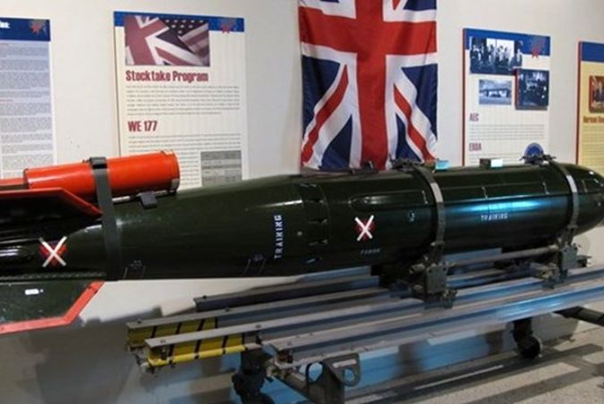BY: Pooya Mirzaei 
NOURNEWS - Under the terms of the International Atomic Energy Agency (IAEA) Convention, the elimination of nuclear weapons is part of the security of the international system, and member states are committed to working towards that.
However, British Foreign Secretary Dominique Robb has called the Boris Johnson administration's plan to expand its nuclear arsenal, necessary for what it calls a "minimum of deterrence".
The plan seeks to increase the number of British nuclear warheads from 180 to 260, which is completely contrary to the provisions of the NPT.
This British action comes at a time when there are a few noteworthy points about it:
First; The hypocrisy and hypocrisy of the British nuclear program has a history, as London has a hostile position against the peaceful nuclear activities of Iran, which has remained silent in the face of the threatening nuclear activities of the Zionist regime with dozens of nuclear warheads and even its creation and expansion.
Second; Britain, while spreading the fear upon Iranophobia, is trying to justify its critical nuclear moves, while the International Atomic Energy Agency has always acknowledged the peaceful nature of Iran's nuclear program, and the world knows the existence of Grand Ayatollah Khamenei's Fatwa against the construction, maintenance and use of nuclear weapons, is the best guarantee for peace.
It is noteworthy that Britain calls Iran's activities threatening, while the Islamic Republic insists that if all sanctions are lifted and Tehran verifies this lifting, it is willing to return to JCPOA commitments, while Western countries refuse to fulfill JCPOA's obligations to lift sanctions. Which is itself a proof of the falsity of Britain's Iran-fearing justifications.
Third; Britain blames Russia for expanding its nuclear bomb production, while Moscow has always insisted on extending the START agreement with the United States, which has faced opposition from Trump and Biden's lack of seriousness in carrying out the plan.
If Britain is really looking for global security, it should push the United States to end non-peaceful and threatening movements, including in the nuclear field, instead of expanding its nuclear capabilities.
Fourth; Britain sees its nuclear capability as a deterrent, while its support for terrorism, the Zionist regime and the Saudi regime, and its widespread support for US sanctions against other countries, have jeopardized world security. Certainly, Britain's renunciation of terrorist and terrorist activities, including in the economic field, will be an important component of world security, and the failure to change Britain's behavior will pave the way for the continuation and intensification of the crisis.
Fifth; Leaders say Britain's nuclear deterrent is taking a look at Britain's internal developments, showing that the economic crisis, social divisions, especially discrimination against people of color, the government's inability to cope with the coronation and the high death toll in the country, crisis over election and exit Britain from the European Union with its economic and social consequences, the return of terrorists trained by British security structures who return with defeat in Syria and Iraq are the most important security threats against Britain.
These threats, which are rooted in the policies of the country's governments, cannot be eliminated with a nuclear bomb. Britain is facing a crisis of legitimacy at home and global distrust, the solution to which is not a nuclear bomb but a change of behavior and an end to authoritarian practices inside and colonial practices outside the country.
Sixth; The move by Britain, France and the United States to increase their nuclear bombs and arsenals, as well as Germany's move to increase its military budget, reflect a power struggle within the Western bloc that highlights the collapse of the security capitalist system.
The position of European leaders on security independence from the United States and NATO is another proof of this security crisis in the capitalist system, a crisis in which widespread economic differences between Europe and the United States, as well as a crisis of unhealthy and critical competition against Corona The health supplies of European and American countries revealed other dimensions of the crisis of the capitalist system.
In conclusion, Britain's recent move, along with clarifying the dual standards of the West, that expose Iran's legitimacy in distrust to them, underscores Britain's destructive role in world peace and security, necessitated by the United Nations and the International Atomic Energy Agency.
Under pressure and even sanctions policy, these organizations must now, under international law, deal with the critical behavior of countries such as Britain, France and the United States, which pose a major threat to world security through non-peaceful nuclear activities and global nuclear competition.

No comments:
Post a Comment